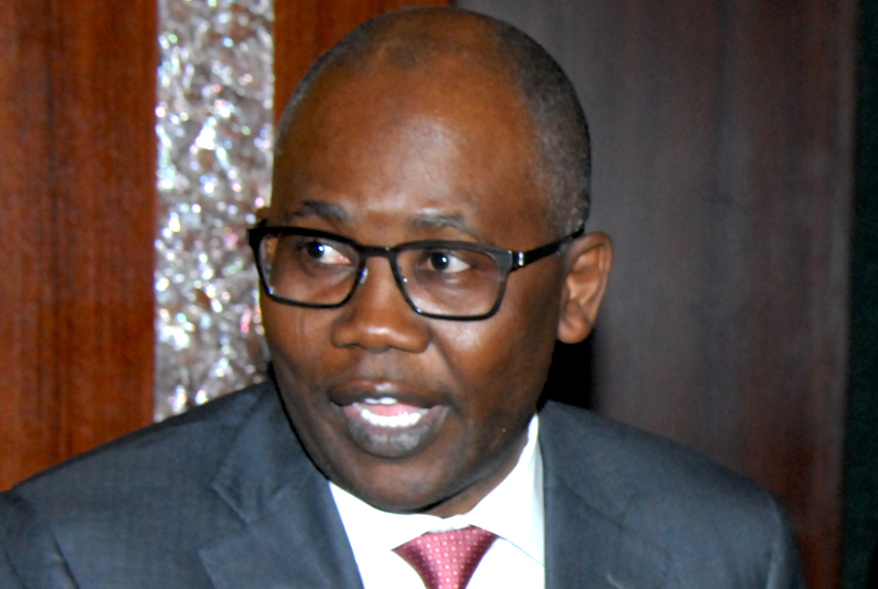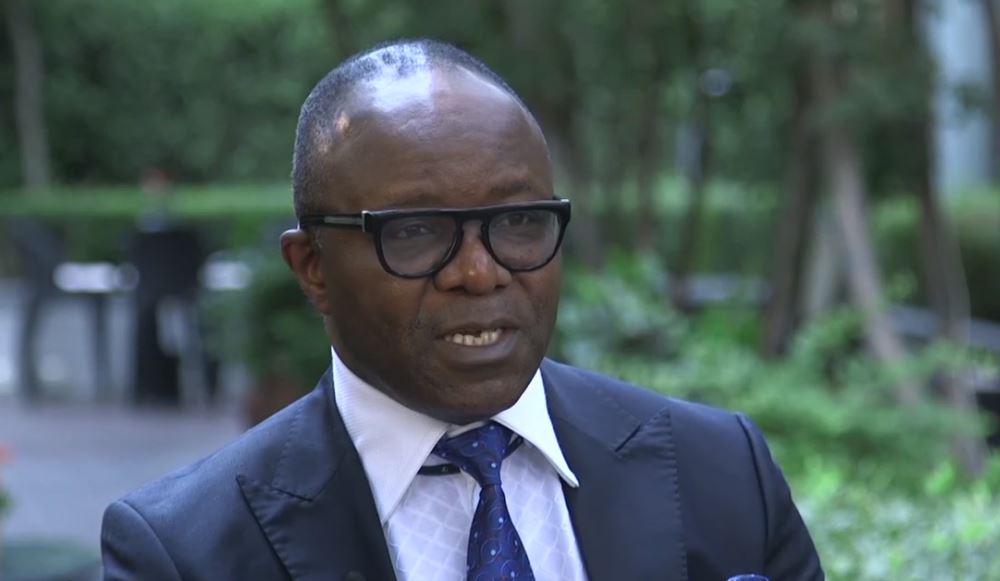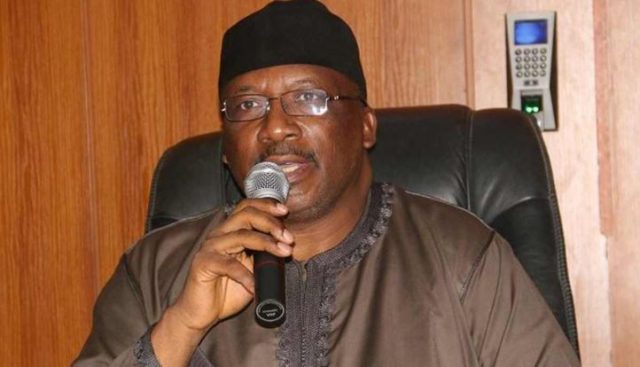A federal capital territory (FCT) high court in Abuja has issued a warrant of arrest against Mohammed Bello Adoke, former attorney-general of the federation, over the controversial OPL 245 deal executed by the federal government in 2011.
But in a response sent by email to TheCable, Adoke said he will fight the order in court because he had already been cleared of any wrong doing by a “competent court of law”.
“The honorable judge was misled by the EFCC to grant the warrant. Justice Binta Nyako ruled in April 2018 that I was only carrying out a presidential order in the OPL 245/Malabu transaction and that I had no case to answer. That naturally ends the EFCC case against me but the agency has chosen this path and I will use all legal means to exonerate myself,” he said.
The Economic and Financial Crimes Commission (EFCC), in a statement on Wednesday, said D. Z. Senchi, the presiding judge of the FCT high court, also granted its prayers for a warrant of arrest against Dan Etete, a former minister of petroleum.
Advertisement
Also to be declared wanted are Raph Wetzels, Casula Roberto, Pujato Stefeno, and Burrato Sebastiano.
They were all to be arraigned before Senchi on Wednesday over the Malabu case but did not show up in court.
In 2017, the EFCC filed charges against Shell Nigeria Exploration Production Co. Ltd, Nigeria Agip Exploration Limited, Eni Spa, Raph Wetzels, Casula Roberto, Pujato Stefeno, Burrato Sebastiano, Duazia Louya Etete (aka Dan Etete), Adoke, Aliyu Abubakar and Malabu Oil & Gas Limited.
Advertisement
On Wednesday, EFCC’s counsel, Aliyu Yusuf, brought a motion ex parte praying the court for a warrant of their arrest, and an order for leave to execute the warrant outside of the jurisdiction of the court.
Senchi granted the prayers of the EFCC, and ruled that the Nigeria Police, the INTERPOL and any other law enforcement agency should arrest them anywhere they are found.
He adjourned the matter till July 11, 2019 for further hearing.
UNDERSTANDING THE ‘OPL 245’ AFFAIR
Advertisement
OPL 245 is an oilfield in the Niger Delta, estimated in some quarters as holding about nine billion barrels of crude oil. It is considered as one of the most lucrative on the continent.
In 1998, the military regime of Sani Abacha came up with the policy of encouraging indigenous participation in the upstream sector of the oil and gas industry.
Oil blocks were allocated to indigenous companies at a reduced signature bonus of $20 million.
Signature bonus is a one-time fee for the assignment and securing of a licence, paid irrespective of economic success for the contractor or licensee.
Advertisement
On April 9, 1998, the federal military government awarded OPL 245 to Malabu Oil and Gas Ltd, which was said to be owned mainly by Mohammed Abacha, son of the Sani Abacha, and Etete, who was the petroleum minister at the time.
On July 2, 2001, President Olusegun Obasanjo revoked Malabu’s licence and assigned the oil block to Shell — without a public bid. Malabu went to court, but ownership was reverted to it in 2006 after it reached an out-of-court settlement with the federal government.
Advertisement
Shell fought back and commenced arbitration against Nigeria, but when President Goodluck Jonathan came to power in 2010, the controversy appeared to have been resolved with Shell and Eni agreeing to buy the oil block from Malabu for $1.1 billion.
The oil companies also paid $210 million as signature bonus to the federal government of Nigeria.
Advertisement
However, allegations of graft have bedevilled the deal, leading to the jailing of the middlemen by an Italian court in 2018.
The EFCC brought back Malabu case in 2017, seeking a court order to return OPL 245 to the federal government — an order which was granted by the federal high court.
Advertisement
But Shell and Eni challenged the ruling and contended that the rights of parties to fair hearing was not followed before the ruling was reached. They prayed the court to reverse the order, and allow the parties address the issue legally.
John Tosho, a judge, held that the ownership of the block should return to Shell and Eni.







